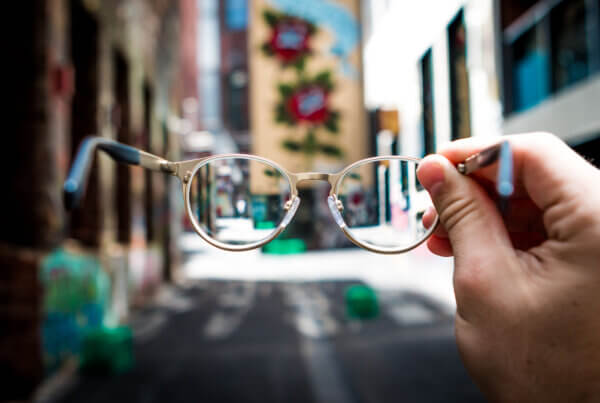Vision loss is something that most people experience eventually. Even if you are lucky enough to live your younger years without wearing glasses or contact lenses, age-related vision loss can eventually set in. Everyone must deal with vision loss to one degree or another as they get older.
Losing your eyesight can be inconvenient, and it can be quite disruptive to daily living for some patients. If you are noticing changes in your eyesight, then it’s essential to talk to an eye doctor right away to evaluate treatment options.
Can Vision Loss Be Reversed?
Unfortunately, certain types of vision loss are irreversible. When damage is done to the optic nerve or retina, then options are limited to restore the vision. If you are experiencing an irreversible type of vision loss, then treatments are focused on slowing the progression of the disease while optimizing your remaining vision as much as possible.
The good news is that medical innovations have been discovered that can cure or reverse specific causes of vision loss. Depending on your diagnosis, your eye doctor might be able to recommend treatments that can restore your vision and improve your life.
Of course, the effectiveness of these treatments depends on your diagnosis and the severity of your vision loss. Every patient needs a personalized treatment plan to determine the most effective solutions for vision correction.
Medical Innovations for Vision Loss
Here is an overview of new medical innovations that show promising results for correcting certain types of vision loss:
- Corneal Implants: Wear and tear on the body can affect the function of organs, and eyes can be affected with age. The cornea is an integral part of your vision, helping the eye focus on things that are both far and near. Over time, the cornea can become stiff and brittle, which makes it harder to focus. Corrective lenses, such as glasses and contacts, can compensate for what the eye can no longer do. Another modern option is corneal implant surgery. This treatment uses laser technology to carefully insert a small implant lens into the eye, helping to focus the light and correct nearsighted vision loss.
- Macular Degeneration Medication: Macular degeneration is widely known as one of the most common causes of age-related vision loss. This eye disease worsens over time and has been mostly untreatable in the past. Now, medication discoveries have been found that can help with wet macular degeneration. This eye condition occurs when abnormal new blood vessels appear under the macula, which can interfere with the retina’s function. Medications can manage the growth of new blood vessels within the eye and decrease fluid buildup.
- Gene Therapy: Certain eye diseases are primarily impacted by genetics. When genetic mutations are identified, it’s possible that medical treatments can help slow or stop the disease’s progress. Additional research and studies are needed before this treatment can be widely used. One recent development is the use of gene therapies for retinal dystrophy.
It’s anticipated that ongoing medical advances will continue to be discovered in the coming years, offering incredible benefits to protect against vision loss. Our team is working hard to stay ahead of the technology advancements, helping our patients access the best treatments for their unique needs. If you’d like to learn more, then you are welcome to contact us to book an appointment.






